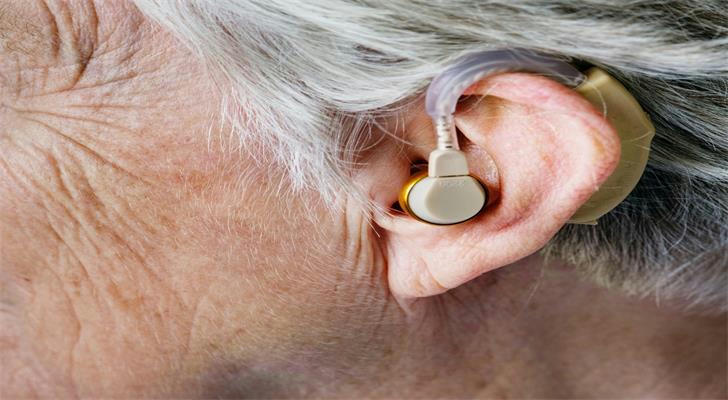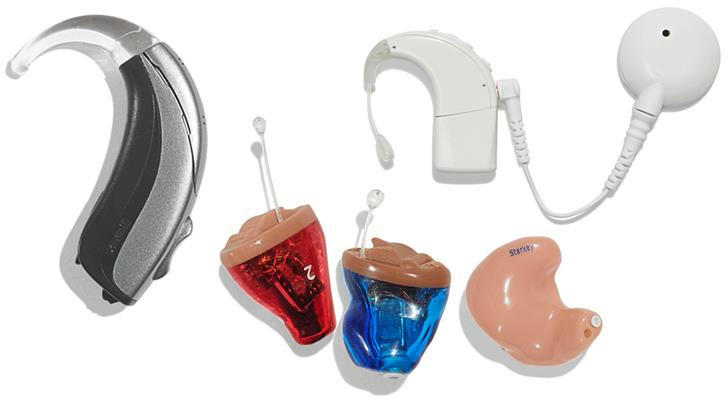Tips for Choosing the Right Hearing Aid

Hearing loss can be a significant challenge, affecting communication, relationships, and overall quality of life. However, with advancements in hearing aid technology, individuals with hearing loss can now enjoy clearer sound and improved hearing experiences. Choosing the right hearing aid is crucial to maximize its benefits. This guide provides essential tips to help you select the best hearing aid for your specific needs and lifestyle.
Understanding Your Hearing Loss
Types of Hearing Loss
To effectively address hearing loss, it's crucial to understand the underlying type. The three primary types are:
1.Conductive Hearing Loss: This occurs when sound waves are blocked from reaching the inner ear. Common causes include earwax buildup, ear infections, or damage to the eardrum.
2.Sensorineural Hearing Loss: This results from damage to the inner ear or the auditory nerve. It's often caused by aging, noise exposure, or certain medical conditions.
3.Mixed Hearing Loss: A combination of both conductive and sensorineural hearing loss.
The Role of a Hearing Test
A comprehensive hearing test, conducted by a qualified audiologist, is essential for diagnosing hearing loss. This test involves a series of assessments to measure your hearing sensitivity at different frequencies.
Key Components of a Hearing Test:
1.Pure-tone Audiometry: Measures your ability to hear sounds at various pitches and volumes.
2.Speech Audiometry: Evaluates your understanding of spoken language in different listening environments.
3.Tympanometry: Assesses the middle ear function, helping to identify potential conductive hearing loss.
4.Otoacoustic Emissions (OAEs): Measures the response of the inner ear to sound stimuli, aiding in the diagnosis of sensorineural hearing loss.
Consulting with a Hearing Healthcare Professional
A hearing healthcare professional can provide valuable insights into your hearing loss, recommend suitable hearing aids, and offer guidance on managing your condition. They can also address any concerns or questions you may have about hearing loss and its impact on your daily life.
By understanding your hearing loss and consulting with a qualified professional, you can take the necessary steps to improve your hearing health and enhance your overall quality of life.

Key Factors to Consider When Choosing a Hearing Aid
Style and Fit: A Personalized Approach
The style of hearing aid you choose should complement your lifestyle and aesthetic preferences. Consider the following options:
• Behind-the-Ear (BTE): A classic choice, offering flexibility, durability, and powerful amplification.
• Receiver-in-Canal (RIC): A popular option combining the benefits of BTE and ITE styles, providing discreet amplification and a natural sound.
• In-the-Ear (ITE): Custom-fitted to the shape of your ear, offering a balance of discretion and performance.
• Completely-in-Canal (CIC): The most discreet option, virtually invisible when worn.
Technology Level: Tailored to Your Needs
Hearing aid technology has advanced significantly, offering a range of features to suit various hearing loss levels and lifestyles. Consider the following factors:
• Digital Signal Processing (DSP): Advanced algorithms that analyze and process sound signals to enhance clarity and reduce background noise.
• Directional Microphones: Focus on sounds directly in front of you, improving speech understanding in noisy environments.
• Noise Reduction: Reduces unwanted background noise, making it easier to hear in noisy settings.
• Wireless Connectivity: Allows you to connect to smartphones, TVs, and other devices for seamless audio streaming.
• Tinnitus Management: Provides relief from tinnitus symptoms, such as ringing or buzzing in the ears.
Battery Life: Powering Your Hearing
The battery life of your hearing aid is crucial for uninterrupted listening. Consider the following factors:
• Battery Type: Zinc-air batteries are the most common, while rechargeable batteries offer convenience.
• Battery Life: Varies depending on the hearing aid's technology level and usage patterns.
• Battery Replacement: Easy-to-replace batteries or rechargeable options.
Water Resistance: Protecting Your Investment
If you're an active individual, water resistance is an important consideration. Look for hearing aids with an IP rating, indicating their resistance to water and dust.
Cost and Insurance: Making Informed Choices
The cost of hearing aids can vary depending on the style, technology level, and features. Consider the following factors:
• Insurance Coverage: Many insurance plans cover a portion of the cost of hearing aids.
• Manufacturer's Warranty: The warranty period can vary, so it's important to consider this when making a purchase.
• Financial Assistance Programs: Explore government programs and charitable organizations that offer financial assistance for hearing aids.
By carefully considering these factors, you can choose a hearing aid that not only improves your hearing but also enhances your overall quality of life.

Tips for Making an Informed Decision
Making an informed decision about your hearing aid purchase is essential. Here are some tips to guide you:
1.Consider Your Lifestyle and Needs:
• Activity Level: If you're active, consider water-resistant and durable hearing aids.
• Social Situations: Opt for hearing aids with advanced features like noise reduction and directional microphones for better hearing in noisy environments.
• Technological Preferences: If you're tech-savvy, you might prefer hearing aids with wireless connectivity for seamless integration with smartphones and other devices.
2.Consider the Features and Technology:
• Noise Reduction: Reduces background noise for better speech understanding.
• Directional Microphones: Focuses on sounds in front of you, improving clarity in noisy environments.
• Wireless Connectivity: Enables direct streaming from smartphones, TVs, and other devices.
• Tinnitus Management: Provides relief from tinnitus symptoms.
3.Ask About Warranty and Service:
• Manufacturer's Warranty: Understand the warranty coverage for repairs and replacements.
• Service Plans: Inquire about extended warranty options and service plans.
• Battery Life and Replacement: Consider the battery life and ease of replacement.
4.Try Before You Buy:
• Trial Period: Many hearing aid providers offer trial periods to experience different models and make an informed decision.
• Adjustments: Be prepared for adjustments and fine-tuning as your hearing adapts to the new device.
Summary
Choosing the right hearing aid can significantly improve your quality of life. To make an informed decision, it's crucial to understand your hearing loss, consider your lifestyle and needs, and explore different hearing aid styles and technologies. Consulting with a hearing healthcare professional and trying out different models can help you find the best fit. Remember, a well-fitted hearing aid can enhance your ability to communicate, connect with others, and enjoy life to the fullest.
